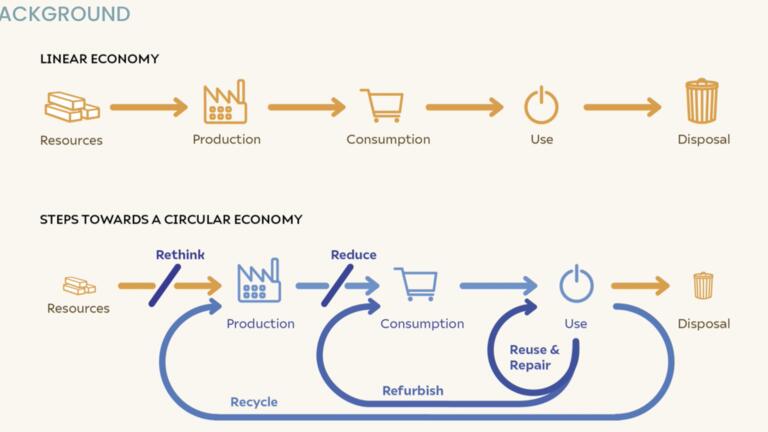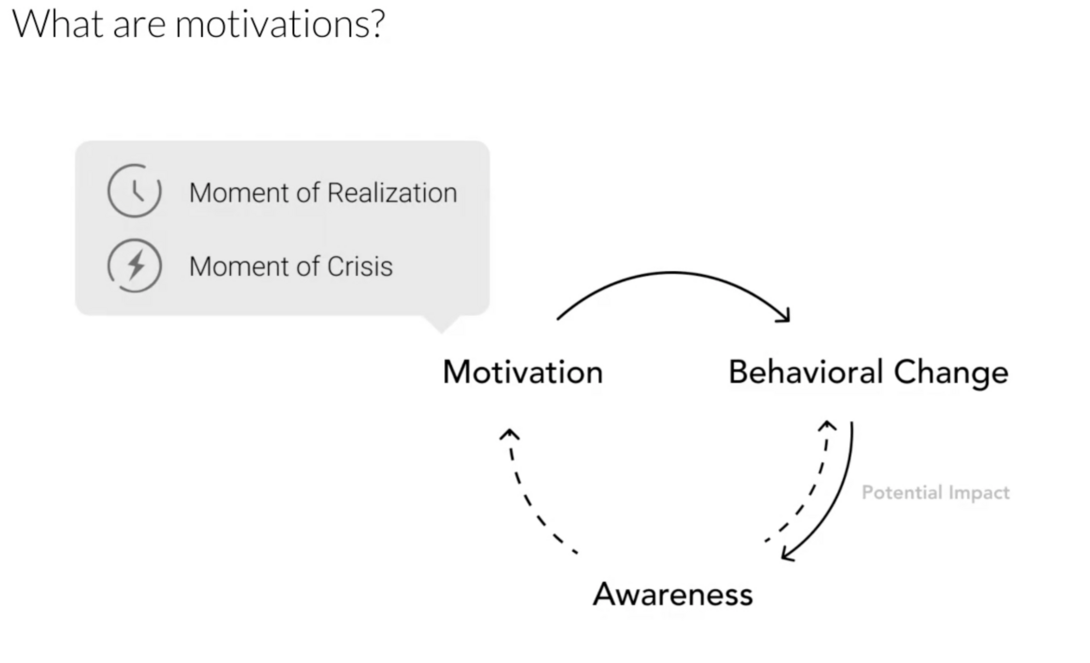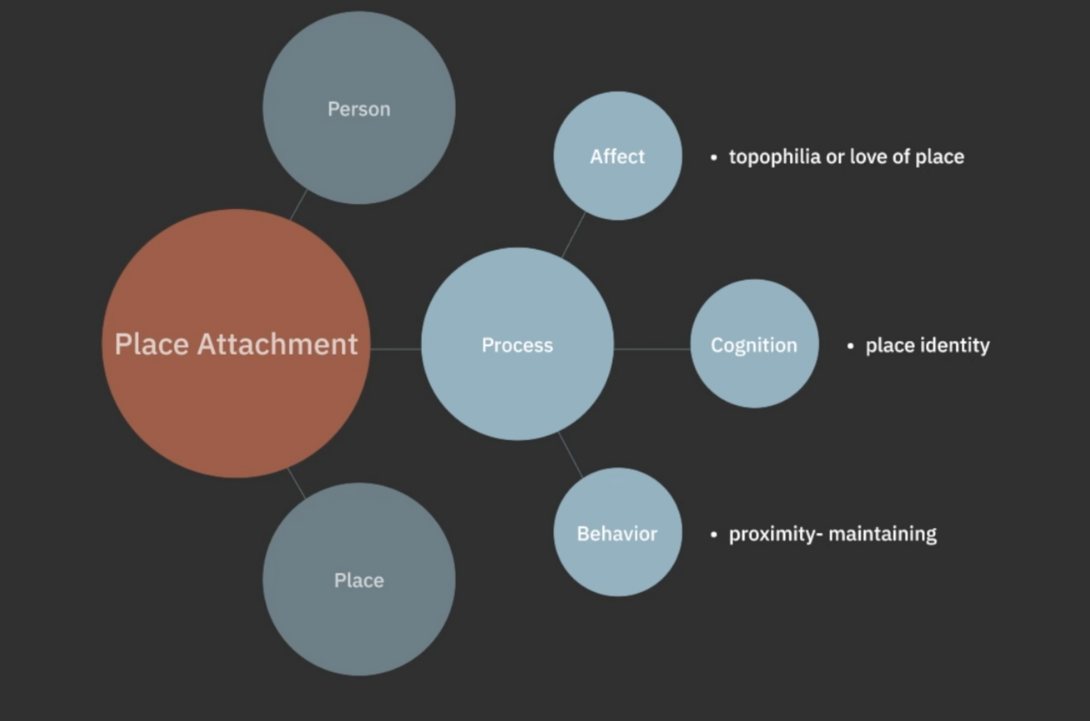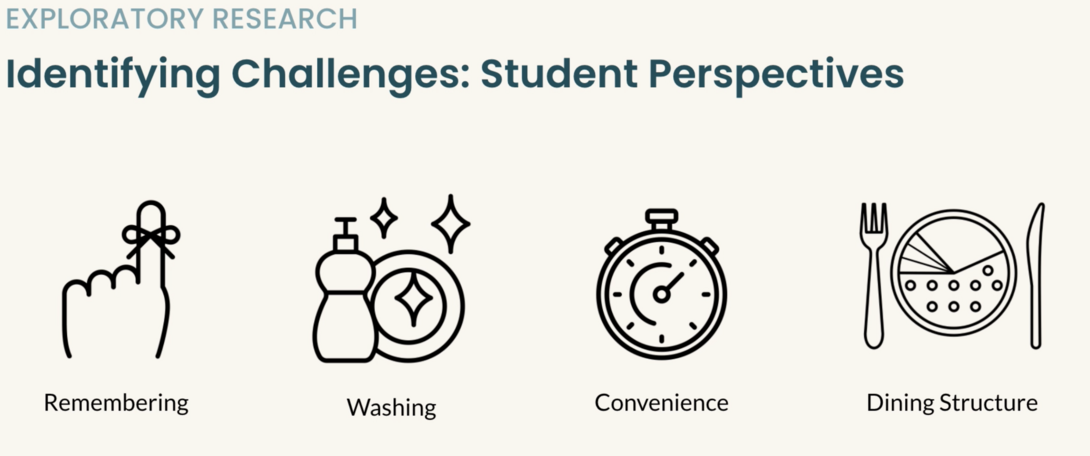Three MDes Students Awarded 2022 kynamatrix Research Grants

At the start of the 2022, Carnegie Mellon University’s School of Design students Xuehui Zhang, Hannah Kim, and Catherine Yochum were awarded kynamatrix Research Network’s "Innovation through Collaboration" grants for projects in design, engineering, and computer science. The kynamatrix Research Network is a nonprofit network of researchers dedicated to the “understanding and advancement of interactive communication, accelerating innovation in design, engineering, and computer science.” The award is granted yearly and encourages studies in “interactive communication across the academic disciplines of design, engineering, and computer science.”
The winning projects, along with their abstracts, were:
Design for Food-Related Behaviors
Xuehui Zhang (MDes’22)
Faculty Advisors: Ashley Deal and Raelynn O'Leary
Human food-related behaviors play an important role in environmental changes—both at the global level and individual level and from the initial stage of production through to final consumption. The environmental issues will exacerbate if no actions are taken to develop an ecological friendly food system. Meanwhile, the debate on the impacts and effectiveness between large-scale transformation and individual actions on the environment never stops. Individual dietary behaviors are complicated due to various intentions, values, and life goals that connect to food choices, and their profound cultural and social implications.
As many explicit applications and services on food sustainability exist, my research aims to explore how persuasive design might play a role in changing food practices to bring ecological benefits through more implicit approaches. My research investigates motivation and behavioral change in sustainable food practices from psychological perspectives. Based on some of the early insights I generated from contextual inquiry and diary study, I argue that it is necessary to address the ecological issue in the food system bottom-up.

Reconnecting to Place
Hannah Kim (MDes ’22)
Faculty Advisors: Kristin Hughes and Peter Scupelli
The time spent in university or college is considered to be an important moment in students’ lives. However, in the last year and a half, from stay at home orders to mask mandates and social distancing protocols, students have been interacting with one another in remote conditions. This has not only affected how students form connections and shared experiences with each other, but in turn have also weakened their connections to physical spaces on campuses. Now that universities and colleges have reopened, it is critical to strengthen relationships among students, helping them form memorable experiences that turn space into place.
My thesis explores the current in-person experiences of undergraduate students at CMU. It aims to investigate how students develop sense of place and form community. I hypothesize that a shared understanding of sense of place is critical to community building in that it fosters stronger systems of support. Early design principles formed from preliminary research will serve as a framework for this project. I aim to use participatory design as an approach to uncover opportunities for how students may form richer connections with one another in physical spaces.

Designing with Social Friction
Catherine Yochum (MDes ’22)
Faculty Advisors: Kristin Hughes and Stacie Rohrbach
As the Center for Architecture’s Zero Waste Design Guidelines state, “Waste is a design flaw”. Natural systems find ways to recycle materials endlessly through millenia; meanwhile, modern production and consumption has created non-biodegradable and non-reparable products that are used and discarded, polluting landfills and waterways.
Our interactions with objects and (what we consider to be) waste are situated both in our immediate contexts and larger scale societal structures, as well as influenced by what has been designed in the past. Social practices are the shared, habitual norms and behaviors that mediate these interactions. While there are many ongoing efforts to transition to a more circular economy, it is likely that “social frictions” (p. 11) will arise as norms, rules, and mindsets change around situations and practices that were previously sources of waste generation. There is an opportunity to create designs that lean into these social frictions in order to explore alternatives to our current throwaway culture. I will situate this study by using participatory methods to explore transitions on CMU's campus that enable and encourage widespread use of reusable utensils.

The kynamatrix Research Network, co-founded by School of Design alumna Alyce Hoggan (MDes ’00), operates collaboratively through two programs: research & grant gifting. These two programs work together to achieve their mission of solving real-world problems.